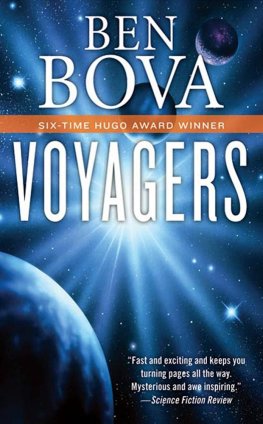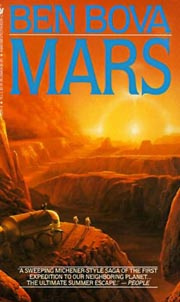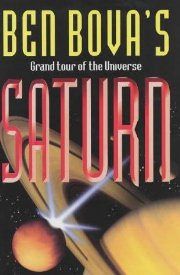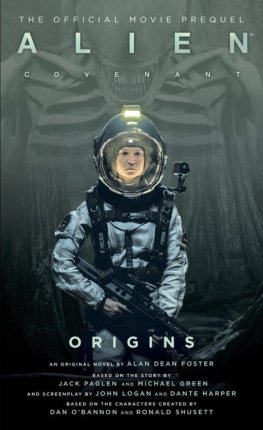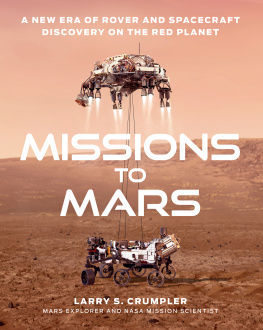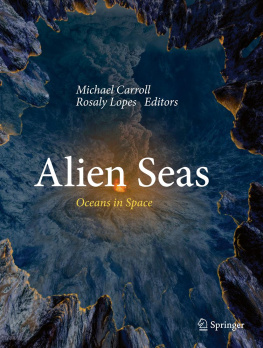It is only by risking our persons from one hour to another that we live at all. And often enough our faith beforehand in an uncertified result is the only thing that makes the result come true.
William James
To the memory of my friend, the truth-seeking David Brudnoy.
And with special thanks to Dwight Babcock, who coined the Lazy H name for one of Titans seas.
24 December 2095: On the shore of the methane sea
It was nearly dawn on Titan. The thick listless wind slithered like an oily beast slowly awakening from a troubled sleep, moaning, lumbering across the frozen land. The sky was a grayish orange, heavy with sluggish clouds; the distant Sun was nothing more than a feeble ember of dull red light smoldering faintly along the horizon. No stars in that smog-laden sky, no lightning to break the darkness; only the slightest hint of a faint glow betrayed where the giant planet Saturn rode high above.
The ice-covered sea was dark, too, with a brittle, cracked coating of black hydrocarbon slush that surged fitfully against the low bluffs that hemmed it in. At their bases the bluffs were ridged, showing where the feeble tides had risen and then fallen back: risen and ebbed, in the inexorable cadence that had persisted for eons. In the distance a methane storm slowly marched across the sea, scattering crystals of black hydrocarbon tholins like a blanket of inkdrops swirling closer, closer.
A promontory of ice suddenly crumbled under the relentless etching of the sea, sliding into the black waves with a roar that no ear heard, no eye saw. Slabs of frozen water slid into the sea, smashing the thin sheet of blackened ice atop it, frothing and bobbing in the water for a few moments before the open water began to freeze over once again. All became still and quiet once again, except for the low moan of the unhurried wind and the ceaseless surging of the waves. It was as if the promontory had never existed.
Titan rolled slowly in its stately orbit around the ringed planet Saturn just as it had for billions of years, as dark and benighted beneath its shroud of ruddy auburn clouds as a blind beggar groping his unlit circuit through a cold, pitiless universe.
But this slow dawn was different. A new kind of day was beginning.
A sudden thunderclap boomed across the ice-topped sea, so sharp and powerful that shards of ice snapped off the frozen bluffs and tumbled splashing into the dark crust below. A flash of light lit the clouds, casting an eerie orange glimmer over the shore of the sea.
Through the clouds descended a thing utterly alien, a massive oblong object that swayed gently beneath a billowing canopy. It descended slowly toward the rounded hillocks that edged the dark, turbid sea. As it neared the icy surface another flash of brilliant, searing light burst from beneath it with a roar that echoed off the ice mounds and across the wavelets of the murky sea. Then it settled slowly onto the uneven surface of one of the knolls, squatting heavily on four thick caterpillar treads as its parachute canopy sagged down to droop over its edge and halfway to the black encrusted sea.
The creatures living in the ice burrowed deeper to escape the alien monster. They had neither eyes nor ears but they were delicately sensitive to changes in pressure and temperature. The alien was hot, lethally hot, and so heavy that it sank through the soft surface mud and even cracked and powdered the underlying ice beneath its bulk. The ice creatures moved pitifully slow; those directly beneath the massive alien were not fast enough to avoid being crushed and roasted by its residual heat. The others nearby wormed deeper into the ice as quickly as they could, blindly seeking to escape, to survive, to live.
Then the black tholin storm reached the cliffs and swirled over the alien monster. Silence returned to the shore of Titans frigid sea.
Professor Wilmots oral diary
Today Urbain and his science chaps land their probe on Titan. The real work of this habitat will begin.
Ten thousand men and woman locked inside this orbiting cylinder. In the two years it has taken to arrive in orbit around Saturn weve survived one murder, one execution, and an ugly spot of police brutality. Weve had an election, of sorts, and established a governmentof sorts.
The scientists are happy. Theyve been studying Saturns rings and even made some startling discoveries. Now theyre sending that ponderous landing vehicle of theirs down to the surface of Titan. Bloody monsters going to trundle around the place under control from up here in the habitat.
Ive been moved out of power, of course. Its better that way. If Eberly hadnt pushed me I would have removed myself. Nasty bit of blackmail, though; not pleasant at all. Nevertheless, my task here is to observe these people and see what kind of a society they ultimately produce for themselves. An anthropologists dream: watching a new society being created.
Ten thousand men and women. No children, of course. Not allowed. Not yet. Exiles, most of our population. Political dissidents and disbelievers who ran afoul of their faith-based governments back on Earth. Locked into this artificial world, this man-made habitat. Its pleasant enough, physically. Better environment than most of them had on Earth, actually. But I wonder. Many of these people will live here permanently; they wont be allowed back to Earth.
Ten thousand hotheads and nonconformists. Physically they are adults, but they behave much like teenagers. Few of them accept responsibilities; they live to play, not work. Except for the scientists, of course. And the engineers, I suppose. Actually, one shouldnt be surprised by their adolescent attitudes. What with their long life expectancies and the rejuvenation therapies that can stretch their life spans into centuries, why shouldnt their adolescent years extend into their forties and fifties?
But it troubles me. It would only take a few of these aged adolescents to cause enormous troubles. They could spread dissatisfaction and rebellion through the whole population, like a viral infection. A few malcontents could wreck this habitat. A handful. Perhaps only one. How can they protect themselves against the outbreak of that kind of disease?
Its going to be interesting to observe what happens.
24 December 2095: Habitat Goddard
Titan Alpha has landed! the mission controller sang out. Shes down safely.
With a loud howl of triumph he yanked the communications plug out of his ear and tossed it to the steel-beamed ceiling of the crowded control center. For the past six days the teleoperated Titan Alpha had spiraled through the radiation-drenched vacuum between the massive habitat Goddard and Saturns giant moon, cautiously orbiting Titan a dozen times before attempting to enter its thick, smoggy atmosphere. Now it had landed safely, and it was time for celebrating.
Eduoard Urbain felt an urgent need to urinate. He realized that he had been standing in front of the mission control centers main console for more than six hours, and now that the controllers were whooping and pounding each other on the back, he felt he could breathe again. And pee.
But it was not to be. Not yet. Standing beside him was Jacqueline Wexler, president of the International Consortium of Universities, from whom funding and promotion and prestige either flowed or was withheld.
At this moment of triumph, Dr. Wexler was all smiles and accolades.
Youve done it, Eduoard! she enthused over the bubbling chatter of the elated scientists and engineers. A successful landing. Its going to be a happy Christmas for us all.
Urbain heard champagne corks popping, the laughter and the raucous horseplay that comes when nerve-twisting tension is suddenly released. Although he felt the same joy and satisfaction, he had no desire to celebrate, no urge to behave foolishly. All he really wanted at this particular moment was to get to the urinal.


